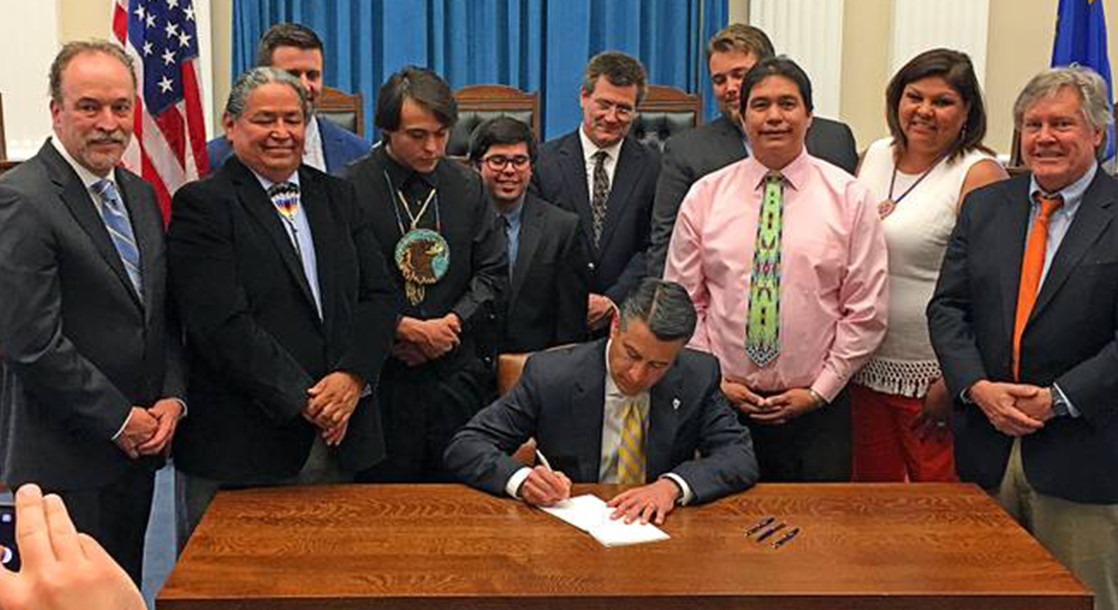As cannabis legalization sweeps across North America, many underserved communities are trying to get their foot in the door of this increasingly lucrative industry. From Canada to California, indigenous people have been vying to legally produce and sell marijuana on tribal lands.
In Nevada, which passed recreational legalization in November, is home to a number of Native American tribes that want to get involved in the state’s imminent cannabis market. With 27 federally recognized tribes consisting of around 40,000 people in the Silver State alone, this widespread population could benefit immensely from both medical and recreational marijuana.
This past weekend, Gov. Brian Sandoval signed Senate Bill 375, a proposal that will allow the Native American tribal governments in Nevada to negotiate directly with the state government about the production and sale of medical cannabis on their reservations. During the bill signing, the governor was joined by the Nevada Tribal Cannabis Alliance, a Native American organization that includes 14 tribes across the state.
“The voters have spoken on marijuana and they’ve adopted this. It’s important that the Native American people can participate in this and for the state to work with all of you,” Sandoval said prior to putting his signature on the legislation.
In addition to giving the indigenous community better access to the legal cannabis marketplace, Gov. Sandoval also approved Senate Bill 396, increasing funding and allowing research on low-THC hemp beyond the current lot of state universities and select local growers. At the moment, there are only 20 producers growing hemp in Nevada, and it’s unclear how much this measure will expand upon that.
Although these two proposals will certainly help bolster Nevada’s budding cannabis industry, the state government has had its hands full with marijuana-related legislation, some of which Gov. Sandoval has decided to veto. Earlier this week, he rejected two bills, one that would have established state apprenticeships for marijuana and another that would add opioid addiction to the state’s list of qualifying conditions.











